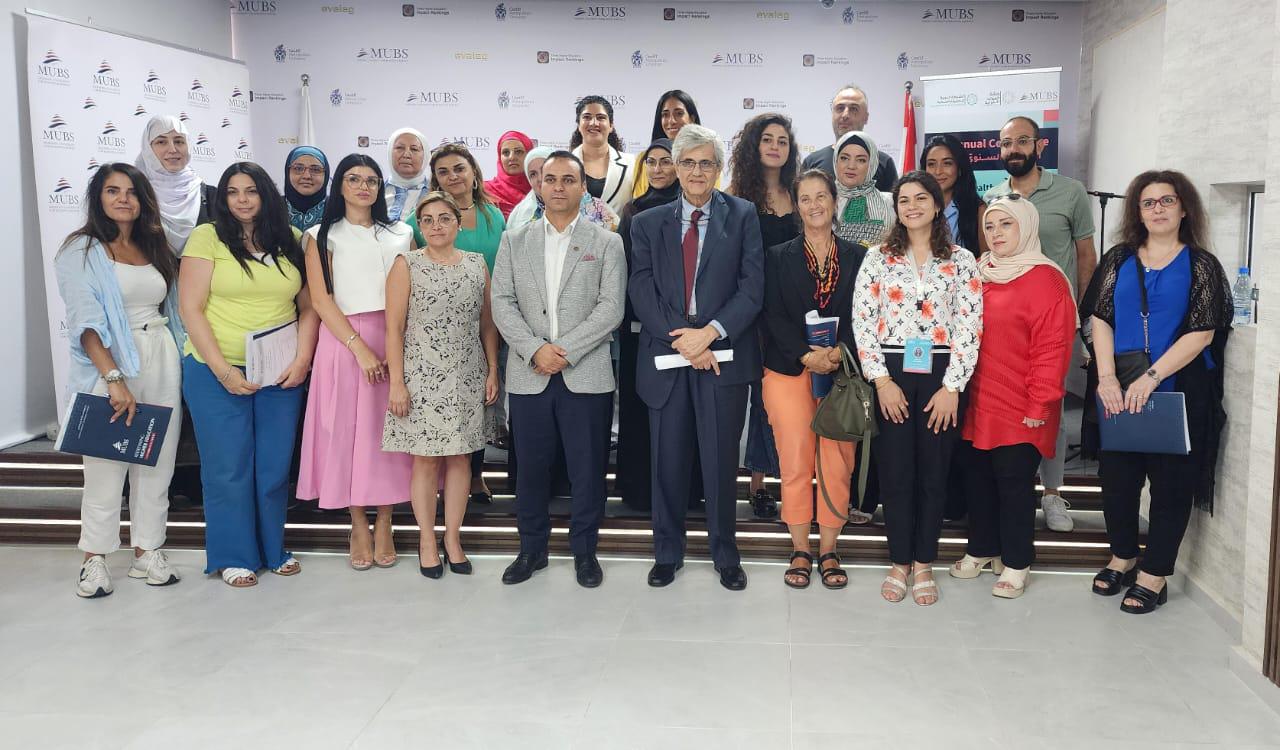We Communicate For Happy Children
 The First Annual Conference on Mental Health and Early Childhood" in Lebanon
The First Annual Conference on Mental Health and Early Childhood" in Lebanon 
July 18, 2024
In the framework of enhancing awareness on mental health among children in early childhood, the Arab Resource Collective (ARC) and the Arab Network for Early Childhood Development (ANECD), in collaboration with the Modern University for Business and Science (MUBS), organized the “First Annual Conference on Mental Health and Early Childhood.” The event took place on July 18, 2024, at the MUBS campus in Badaro, Beirut.
This conference is the first of its kind in Lebanon, bringing together academics, researchers, experts, and professionals from various disciplines and countries to exchange knowledge, experiences, and insights on mental health and early childhood within the context of ongoing regional crises and digital transformation.
The conference addressed a range of pivotal issues related to mental health and early childhood, particularly in light of the multiple crises Lebanon is experiencing, alongside the digital transformation that has posed new challenges for educators and professionals in the field. The event aimed to explore the current state of mental health for these professionals and its impact on their job performance, as well as on the physical, emotional, social, and cognitive development of children. Moreover, the conference emphasized the importance of addressing mental health issues in this field and proposed potential strategies to overcome the related challenges.
The opening session featured several key speeches, including one by Dr. Nael Alami, President of MUBS, and another by Ms. Rita Karam, Secretary General of the Higher Council for Childhood under the Lebanese Ministry of Social Affairs. This was followed by a presentation from Dr. Faten Skaff, a researcher at ARC, who discussed mental health and development in early childhood.
The conference sessions began with an overview of the challenges facing early childhood development during crises and digital transformation. Dr. Skaff provided an assessment of the current situation of children and their families amid the multifaceted crisis Lebanon is undergoing. Dr. Hiba Mohammed Ksair from the Islamic University of Lebanon addressed the impact of the economic crisis and displacement in Lebanon on early detection of developmental difficulties. Dr. Caroline Tarraf, Mental Health and Psychosocial Support Coordinator at Amel Association International, presented her research on the effects of early trauma on child development. Concluding the session, Dr. Hayat Aitani from MUBS discussed the impact of digitalization on educational innovation, curriculum adaptation, and the mental health of children in early childhood education.
The second session focused on the current state of mental health in early childhood. During this session, Reem Fawwaz, Mental Health Project Coordinator at ARC, presented a field study on the mental health of early childhood educators during crises. The session also highlighted the psychological distress and its dimensions that professionals in this field experience.
In the third session, participants emphasized the importance of addressing mental health issues in early childhood. Ms. Marwa Yehya from Mentor Arabia initiated the session by discussing how to transform early childhood education through creative solutions. Dr. Rasha Abdel Rahim from Al-Sham Private University presented on the effectiveness of a training program aimed at fostering a culture of volunteerism among kindergarten teachers and how this contributes to instilling positive values in preschool children. The session concluded with Dr. Maysa Al-Saadi from the Oman College of Health Sciences, who presented her research on self-compassion and mental health among mothers raising children with Autism Spectrum Disorder.
The fourth session was dedicated to presenting policies and recommendations related to supporting early childhood. Ms. Pamela Zgheib from the Lebanese Ministry of Public Health opened the session by discussing the early childhood development programs and policies adopted by the ministry in Lebanon. The session also included an interactive discussion with the audience to explore the effectiveness of these policies and measures in light of the current challenges.
The closing session served as a platform for exchanging practical and professional experiences. Dr. Baha Yehya from the Lebanese University began by sharing her testimony based on her extensive experience in psychological services with the War Child Care Association. Dr. Amal Hawari, Head of the Social Work Department at MUBS, discussed the role of social work in enhancing psychological support for students and teachers. The session ended with Reem Fawwaz presenting on the “Nawwara Wellbeing Platform,” which aims to provide psychological support to professionals in the early childhood field.
In conclusion, ARC Coordinator Dr. Ghassan Issa thanked the attendees and participants, underscoring the importance of continued collective work and collaboration to improve mental health during early childhood in Lebanon. The event concluded with attendees exchanging views and discussions, offering an opportunity to expand professional networks and enhance future cooperation.
For more information:
MH & ECD conference Program
